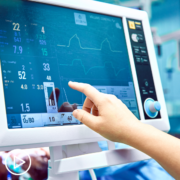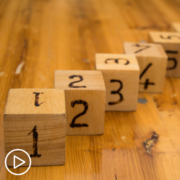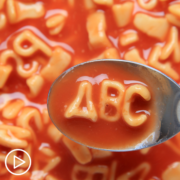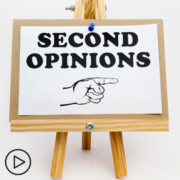Is Myeloma Research Examining Sequencing of CAR T and Bispecifics?
Is Myeloma Research Examining Sequencing of CAR T and Bispecifics? from Patient Empowerment Network on Vimeo.
Is the sequencing of CAR T-cell therapy and bispecific antibodies being examined in myeloma studies? Expert Dr. Ola Landgren from University of Miami Sylvester Comprehensive Cancer Center discusses what’s known about sequencing of CAR T and bispecifics and what needs further study in clinical trials.
Download Guide | Descargar Guía
See More from START HERE Myeloma
Related Programs:

|

|

|
Transcript:
Lisa Hatfield:
So with both CAR T and some of the bispecifics approved, obviously if a patient comes in and they need something right away, they’ll take whatever is first available. But all things being equal, if a patient says, well, I can, I have both CAR T accessible and bispecifics accessible. There are some patients out there, I’ve spoken with some who are wondering, is there a benefit to sequencing one before the other, or are there any trials looking into that?
Dr. Ola Landgren:
There are studies that have allowed patients to go on treatment with one of these modalities. For example, the bispecific antibodies with the prior exposure to a CAR T-cell therapy. There are also trials with CAR T-cell therapy that has allowed patients who have been exposed to prior antibodies, either bispecifics or the conjugated antibody drug conjugates, Belantamab mafodotin. So if you look at those studies and see how the numbers compare, if you are not exposed or you are exposed, I think the data is not entirely clear-cut.
There is no definitive study. Some data suggests that maybe it’s not that different, but then there are some studies that suggest that if you go to the antibody first that maybe that would lower the efficacy of the CAR T cell. So some people have for that reason said the CAR T cell should be done first. To make it even more complicated, there are some studies that have then taken time into the equation. So that means that you could have the patient treated with the antibodies for BCMA and CD3, and the antibody is given successfully for a long time, for many years. And eventually, unfortunately, the antibody may stop working.
Now, if you switch back to back to a CAR T-cell therapy without any other therapy in between, some studies indicate that that’s less likely to be beneficial. But if you instead do another target, say you did GPRC5D/CD3, or you did a completely different therapy with small molecules or you did carfilzomib (Kyprolis), or you did venetoclax (Venclexta), or IMiDs, or different types of combinations that are out there, been around for a long time, and you get good mileage out of those combinations.
Now, if that stops working, if you now go to this other therapy, you go back to the CAR T cell, that will suggest that the results are not that different. So I think that there are aspects that we don’t fully understand. I personally believe, based on what I’ve seen, based on what I know from treating thousands of patients with myeloma for almost 30 years I’ve been a doctor, I think time is probably very, very important. So if you go back to back from one therapy to the other, that’s less likely to be beneficial. If you go from one therapy, and it stops working and go to the other drug with the same target.
But I would say it’s not that different from how we think about IMiDs or proteasome inhibitors. If you were to go single drug with a proteasome inhibitor and you switch to single drug with another proteasome inhibitor, or the same thing with an IMiD, that’s less likely to work versus if you went to something else in between. So we just need to generate more data and learn. Lastly, I want to say that in my experience, from all I see in my clinic at the current time, I think the choice that patients make is based on personal preference and to some degree also the situation of the patient. I saw a patient yesterday, 50 years old, who came from another country and has relocated to us here in Miami and asked, what are the options?
And we talked about CAR T cells, we talked about bispecifics. And considering all the different factors that CAR T cell would imply that we had to give some other combination therapy for two or three cycles while we harvest the CAR T cells and manufacture the CAR T cells and then plan for the admission and give it, and also that the patient was not really very happy about the side effects in the hospital with CAR T cell. That patient shows the bispecific, but I’ve also seen other patients in the same situation saying, I’d rather do these different steps for two or three months, I stay in the hospital, and then I enjoy being off therapy.
Actually, I saw another patient just a few days ago, a gentleman in his upper 70s who we had the same conversation, and he had picked the CAR T cells. And I saw him with his wife and he has been off treatment for two years doing excellent. So different patients make different decisions. And I think that is just how the field is evolving. So I think we should be open to individual patient’s priorities and what they want, and we should just offer everything. And of course, we can guide if a patient wants us to give direction, but I think presenting it and let patients be part of the decision-making, that’s the future of how medicine should be practiced.
Share Your Feedback:
Create your own user feedback survey










